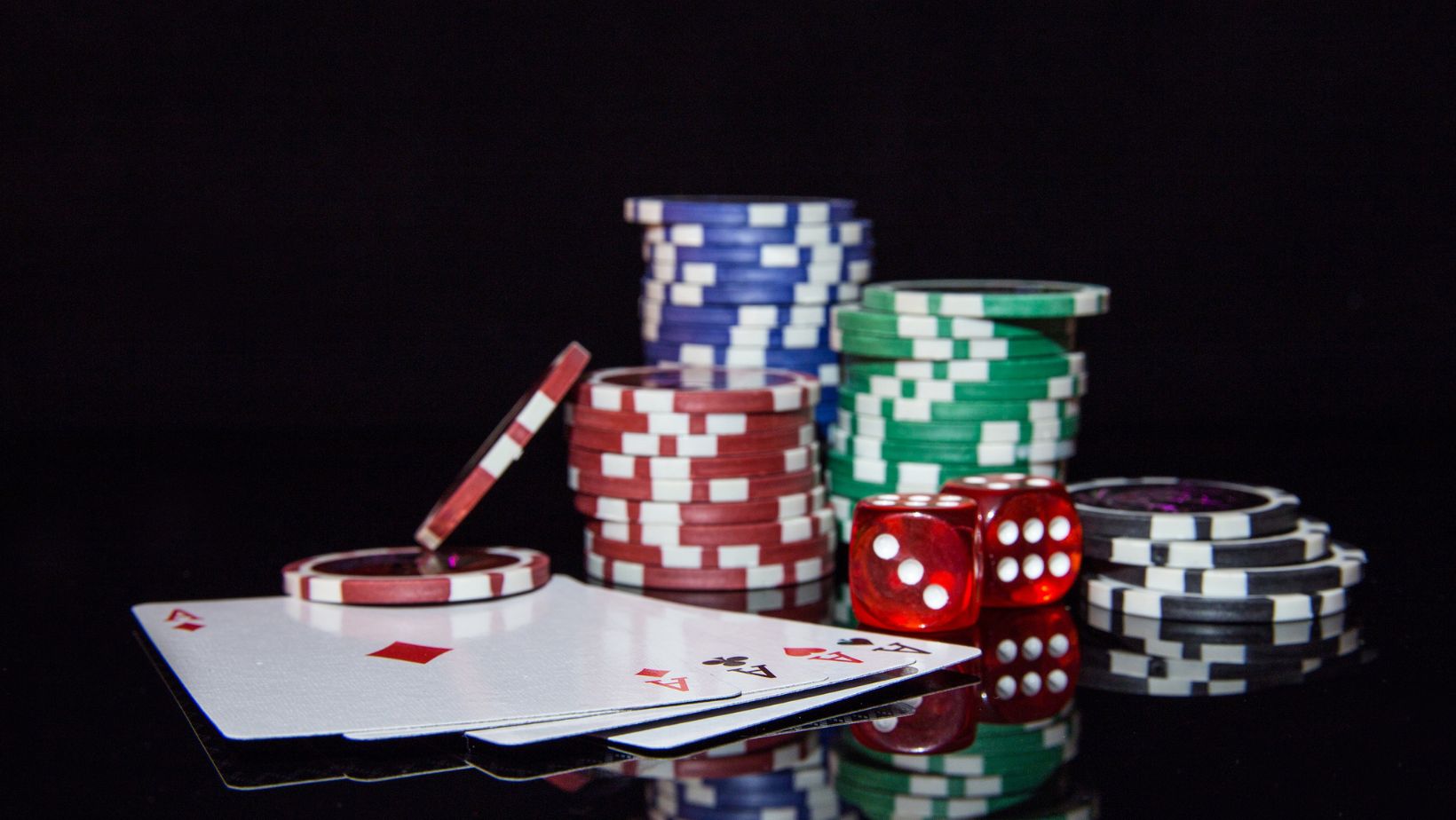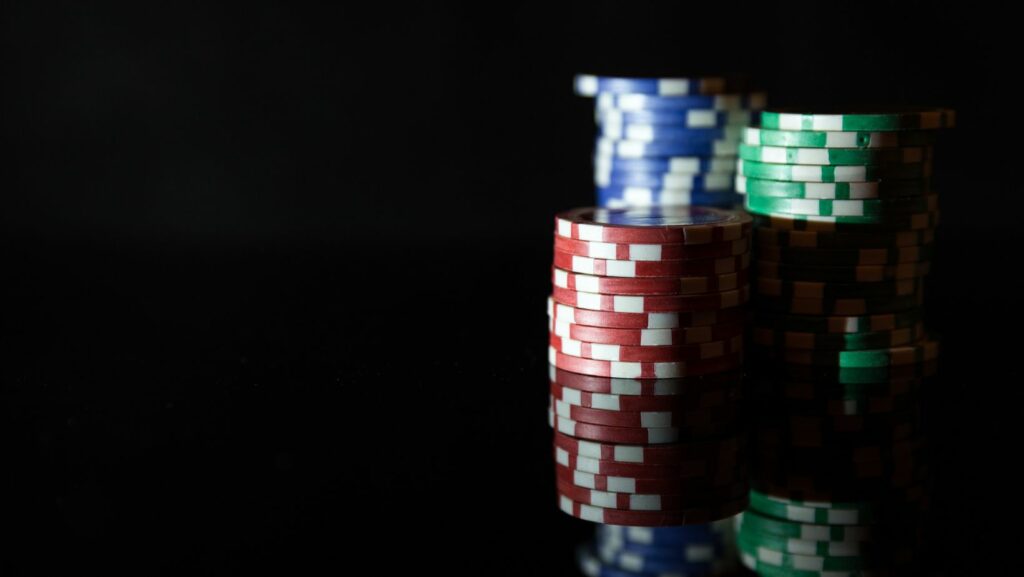When considering the most iconic games offered in gambling settings, a central point of debate is often the ratio of skill to luck involved in each. Indeed, numerous popular casino mainstays are based fundamentally on chance, with players relying predominantly on the whim of the draw.
Other titles incorporate skill to a greater degree, allowing players to leverage strategy and mathematical principles to increase their odds. By examining key games through this lens, we can gain insight into the talent versus chance dynamic at play.
Poker: A Game of Skill Wearing Luck’s Clothes
Among casino card games at Wild Fortune Casino and on renowned websites, poker has an outsized reputation for necessitating skill. Unlike game types where players exclusively contend against the house, poker pits participants against each other. This head-to-head format allows adept strategists to capitalize on opponents’ tells and statistical mistakes.
Yet while skilled poker players can gain a definitive edge, the game still centers on randomly generated cards. As such, analysts often classify poker as a game of skill dressed in luck’s clothes. The ratios vary by specific poker variant, but experts estimate over long-term play:
- Texas Hold’em Poker: Skill 55%, Luck 45%
- 7-Card Stud Poker: Skill 60%, Luck 40%
These ratios reflect how seasoned poker veterans can overcome chance through shrewd wagers, mind games, threat analysis and math-oriented strategy. Amateurs, however, will likely find themselves at the mercy of the random card distributions. That’s why so many players turn to an aus online casino, where a wide variety of poker variants and other table games let both newcomers and seasoned strategists put their skills to the test.
Blackjack: A Game of Chance Veiling Strategic Nuance
Unlike poker where players battle each other, blackjack pits participants directly against the dealer’s hand. As a result, the skill component derives not from outmaneuvering an individual opponent, but rather optimizing one’s own decisions based on the visible cards.
Skilled blackjack players leverage basic strategy guides that dictate the statistically advisable move for every possible dealer upcard and player hand combination. Those who flawlessly execute basic strategy trim the house edge down from around 5% to 0.5% or less.

However, while blackjack offers room for talent to trim the innate house advantage, the game ultimately hangs on the dealer’s randomly generated cards. Hence blackjack is often deemed a game of chance obscuring strategic nuance. Most analysts assess the luck-to-skill proportions as follows:
- Blackjack: Skill 10%, Luck 90%
So while perfect basic strategy affords limited skill influence, blackjack still leaves players largely at the whim of chance.
Slots: The Purest Expression of Chance
If poker and blackjack represent skill-based games cloaked in luck, then slots are the purest embodiment of chance itself. Each spin of the reels represents an independent random event, with zero capacity for mathematical strategy or predictive analysis.
With slots built on the principle of variability, no action a player takes can alter the underlying programmed odds. As such, gaming mathematicians classify slots as virtually 100% chance, with a typical skill rating of:
- Slots: Skill 0%, Luck 100%
In this way, slots distill casino gaming down to its chance-driven core. Players must depend wholly on the slot machine’s random number generator to align the symbols in a winning configuration.
Craps: Clear Strategies Emerging from Chaotic Outcomes
With its fast-paced action and mass communal wagering, craps presents an interesting case study. On the surface, enthusiastic players surrounding a large felt table and cheering dice rolls evoke the height of casino chaos.
Yet despite this perceived disorder, craps offers some of the clearest betting strategies among all major games. By wagering on pass/don’t pass lines and avoiding sucker bets like proposition wagers, savvy players can reduce the house edge to under 1%.
- Craps: Skill 20%, Luck 80%
So while seasoned participants can employ skill to curb chances of loss, each roll ultimately comes down to probabilities, offering a prime example of talent shining through casino chaos.
Roulette: The Epitome of Randomness
Along with slots, roulette forms an interesting comparison point as the games most devoid of skill influence. With either a ball bouncing around a spinning wheel or cards being randomly plucked for the player, little opportunity exists to shift the odds.
Veteran roulette fans may experiment with tracking dealer signatures or predicting landing sectors, but such tactics cannot overcome the emphatic randomness.
- Roulette: Skill 0%, Luck 100%
As such, roulette presents the epitome of casino chance, with players’ fates resting entirely on the whims of the draw.
Game Skill Levels
| Game | Skill Influence | Luck Influence |
| Texas Hold’em Poker | 55% | 45% |
| 7-Card Stud Poker | 60% | 40% |
| Blackjack | 10% | 90% |
| Slots | 0% | 100% |
| Craps | 20% | 80% |
| Roulette | 0% | 100% |
Casinos Offer a Spectrum of Skill and Chance
From poker to slots, craps to roulette, casinos feature a diverse array of titles based on varying ratios of skill and luck. While games like slots and roulette leave players purely subject to chance, titles like poker and blackjack enable those with sharper strategies to trim the house advantage.
In the end, casinos thrive by offering games across the skill spectrum, catering to both strategic sharks and casual visitors merely hoping to get lucky. So whether you consider yourself a discipline master or fate’s devotee, gambling venues house an experience tailored to your sensibilities.
Just remember, as seasoned vets like to say: the house always wins in the end. So best to keep those wallet slots tightly sealed and enjoy the games strictly for their entertainment value.

